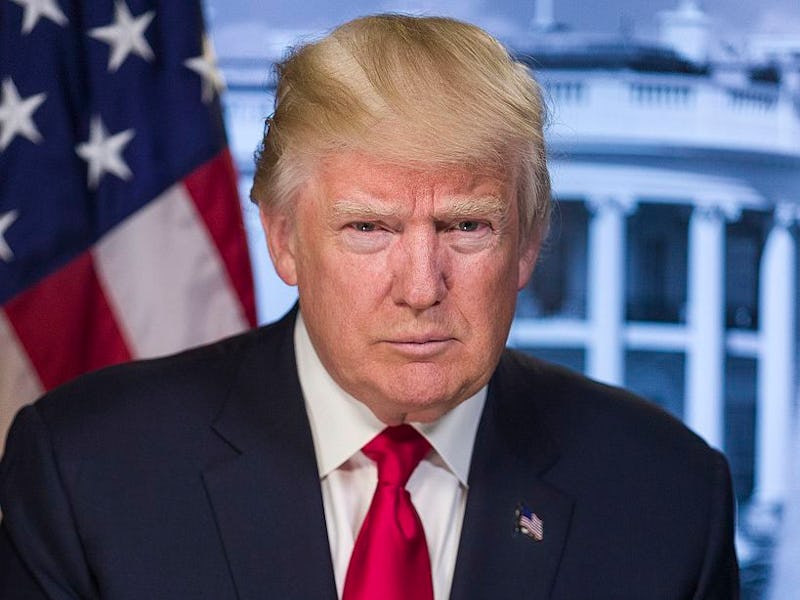What Trump Means When He Claims "End of War" on Clean Coal
Carbon capture and storage technology is big news.

President Donald Trump claims the war on clean coal is over. In his State of the Union speech delivered in the House Chamber on Tuesday, Trump declared the country is now an exporter of energy and the fight against clean coal — touted by some as a useful way of reducing carbon emissions — is over.
“In our drive to make Washington accountable, we have eliminated more regulations in our first year than any administration in history,” Trump said. “We have ended the war on American Energy — and we have ended the war on clean coal. We are now an exporter of energy to the world.”
Clean coal is the umbrella term for a number of technologies used to mitigate the effects of this traditionally dirty fuel source. When coal burns, it releases toxins into the atmosphere. These methods are seen as a way of helping the environment.
There are several technologies that fall under this term, but one of the most ambitious is carbon capture and storage. This involves taking the carbon dioxide produced by the plants and treating it in one of three ways:
- Flue-gas separation. This uses a solvent to remove the carbon dioxide after combustion, which can be stored and later re-used for commercial purposes.
- Pre-combustion capture. The coal is mixed with oxygen prior to burning to create a mix of carbon monoxide, carbon dioxide and hydrogen, a result known as “syngas.” This gas can be used to burn in a turbine through a system known as an “integrated gasification combined cycle,” which has varying rates of capture. The alternative is taking an extra step and using it to create “substitute natural gas,” which has a 90 percent capture rate.
- Oxy-fuel combustion. This removes carbon dioxide by burning the coal in oxygen, which creates carbon dioxide and water. This is less energy intensive than flue-gas separation.
Clean coal: a good solution, or expensive half-step?
Whether there ever was a war on clean coal is dubious. PolitiFact claims the “war on coal,” as mentioned by Mitch McConnell in 2013, came from an Obama advisor speaking in a personal capacity that thought such a war was needed.
The main sticking point around clean coal is the price. The New York TImes wrote in July 2016 that plants that support such carbon capture and storage technology cost around 75 percent more. The Congressional Research Service claimed in a November 2017 report that just two coal plants in the world capture large amounts of carbon dioxide, with Petra Nova in Texas the only one in the United States. A third plant was scheduled to begin capture operations, but this was suspended in June 2017 partly due to cost overruns.
Restrictions proposed by the Environmental Protection Agency under Obama, critics argued, would push energy providers to look at alternative energy sources instead of clean coal due to the economics at play. The Trump administration decided to repeal the Clean Power Plan in October 2017, but states like Colorado and Arkansas stated they would continue exploring carbon-cutting measures. Whether these initiatives will lead to a furthering of carbon capture adoption, or whether alternatives like solar and wind will take over for economic reasons, remains to be seen.